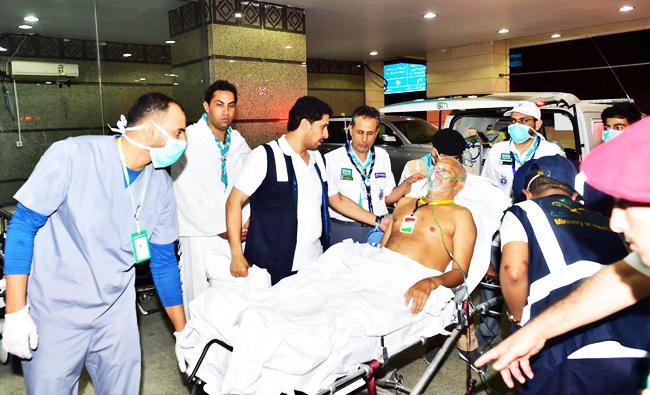
Saudi Health Ministry issues eye-safety tips for pilgrims
The Health Ministry has urged pilgrims to follow eye-safety guidelines during Hajj, and avoid standing under the sun for long periods without protective eyewear.
The ministry called on pilgrims to wear sunglasses during the day to protect their eyes from potential damage by the sun.
Allergic conjunctivitis from dust during the Hajj season is common. Symptoms include watery eyes, redness and severe itching.
The best way to relieve it is by using cold water to wash the face and eyes.
When eye problems occur, patients should use special drops, including lubricating solutions and anti-allergic drops, depending on the severity of the disease.
The ministry said another eye disease pilgrims are exposed to is inflammatory bacterial conjunctivitis, due to exposure to severe dust or using someone else’s personal items.
Symptoms include redness of the eyes, discharge and swollen eyelids in the morning.
In this case, patients should get prescription drops, ointments or antibiotics.
They should also wash their eyes and avoid using any other people’s personal items such as towels.
Pilgrims who recently underwent eye surgery should wear a plastic protective cover on their eyes throughout Hajj to avoid dust and potential inflammation, the ministry said.
It also urged them to avoid severe stress or carrying heavy objects.
If a foreign object enters the eye, a pilgrim should not try to remove it, but instead wash the eye and visit the nearest medical center.
Toll-free number launched to assist pilgrims
The Ministry of Hajj and Umrah has launched a 24-hour, toll-free number to serve and help the guests of Allah.
The ministry has allocated the number 8004304444 to communicate with pilgrims and receive their inquiries and observations, from inside and outside the Kingdom, the Saudi Press Agency (SPA) reported on Thursday.
“Calling the… number will help pilgrims find a solution to a problem they might face during Hajj,” a ministry official said.
Meanwhile, the Kingdom has launched a Persian-language satellite TV channel to broadcast Hajj, which began live coverage on Thursday.
Adel Al-Barriah, the program director, said the 24-hour live broadcast channel will provide valuable information about the pilgrimage, targeting more than 130 million Persian-speaking people worldwide.
The channel will telecast its coverage via four satellites: Arabsat, Nilesat, Yahsat and Hot Bird.
The Persian telecast will also highlight the Kingdom’s concerted efforts to facilitate Hajj in its endeavor to serve the guests of Allah.





















